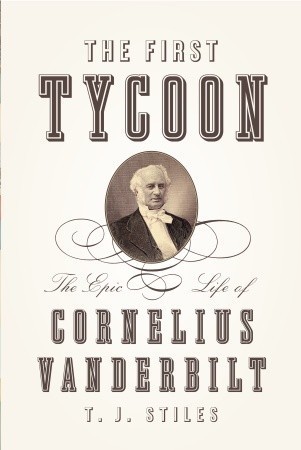What do you think?
Rate this book


736 pages, Hardcover
First published April 21, 2009
Though Stiles's admiration for the man who inspired the phrase "robber baron" shines throughout this extraordinary rags-to-riches story, he harbors no illusions about his vindictive and bad-tempered subject. Stiles is quick to set the record straight when the past has condemned Vanderbilt unfairly, but he details his unscrupulous business dealings and troubled relationships with equal aplomb. Stiles's exhaustive research has resulted in a massive, carefully edited book, and critics were surprised by the author's ability to keep most of them engaged from beginning to end. Filled with fascinating insights into the lives of Vanderbilt and his contemporaries, as well as America's social, political, and economic climate, The First Tycoon is a fitting tribute to a remarkable life and a must-read for anyone interested in the making of American business.
This is an excerpt from a review published in Bookmarks magazine.